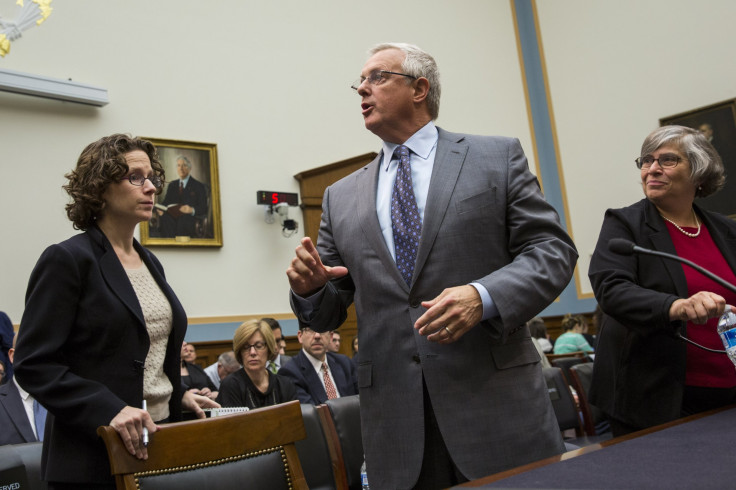Apple: By Going To Court, FBI Cut Off America’s Debate On Encryption

Apple General Counsel Bruce Sewell on Tuesday said the FBI’s decision to get a court order compelling the iPhone maker to build a so-called backdoor into one of its devices “cut off the debate” on encryption technology. Ultimately the intertwined issues of encryption, law enforcement surveillance and Americans’ right to online privacy is one that must be decided by Congress, Sewell said.
“If the court were to grant the relief that the FBI is seeking we would be forced to do the very thing which we think is at issue and should be decided by the American people,” Sewell told the House Judiciary Committee.
Sewell spoke following testimony from FBI Director James Comey that largely focused on the iPhone belonging to Syed Rizwan Farook, one of two killers in the Dec. 2 shooting in San Bernardino, California. In his remarks, Sewell warned that it is important that the U.S. government support its decision not to weaken the security that protects hundreds of millions of iPhone users or it will “be a hot minute” before other governments around the globe, such as China, demand that Apple do the same for them.
“Our ability to say that we will not compromise the safety and security of any of our users anywhere in the world is substantially weakened if we are forced to make that compromise here in our country,” Sewell said. “I urge this Congress and the government generally to understand and to take a leadership role -- give us the strong support that we need to resist any effort by other governments to weaken safety and privacy.”
Sewell spoke before bipartisan members of Congress, who generally seemed supportive of Apple’s stance that the question of encryption and digital privacy must be answered by the legislative branch, not the judicial. Nonetheless, Sewell was bombarded with questions over what type of legislation Apple could support.
“Can you submit legislation ... that you could wholeheartedly support and lobby for that resolves this conundrum between you and the bureau?” asked Rep. Trey Gowdy, R-S.C.
“It is my firm belief that such legislation can be drafted, but I do not have language for you today,” Sewell said, adding later: “If after we have the debate to determine what the right balance is, then I think that’s a natural outcome.”
“Well how long is the debate gonna last?” Gowdy asked.
“I can’t anticipate that, Congressman,” Sewell said.
The committee also asked Sewell whether weakening the security of an iPhone could do anything to help law enforcement access data on non-Apple apps. Sewell said no and explained that Telegraph, one of the apps most often associated with terrorist activity, “has nothing to do with Apple.”
“If what happens here is that Apple is forced to write a new operating system to degrade the safety and security in phones belonging to tens or hundreds of millions of innocent people, it will weaken our safety and security, but it will not affect the terrorists in the least,” Sewell said.
© Copyright IBTimes 2025. All rights reserved.




















